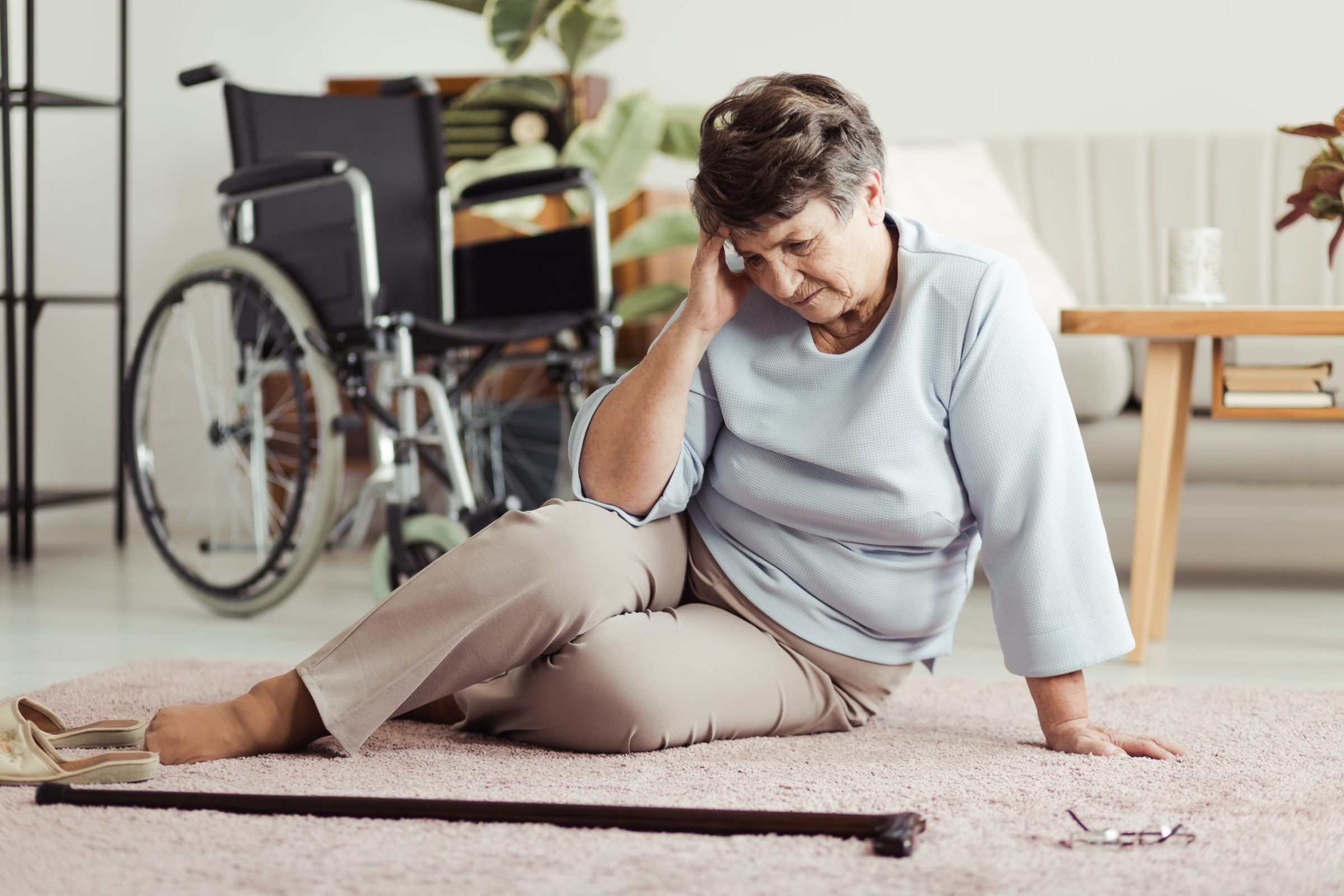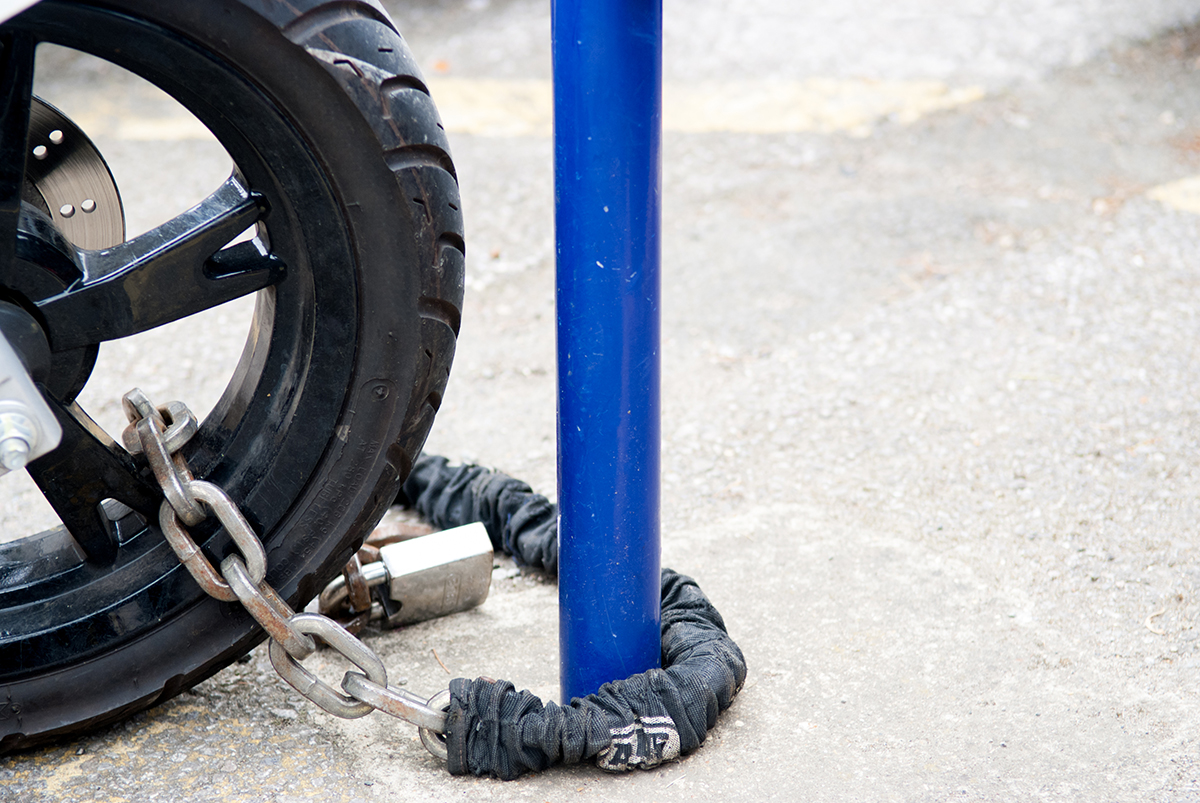Recent research shows that falls are the leading cause of hospitalizations and accidental deaths in people over sixty-five years old.
Unfortunately, many of those cases involved head injuries. In fact, at least 56,000 seniors are brought to the hospital for fall-related head injuries every year.
If you’re a caregiver, it’s essential to know the signs and symptoms of traumatic brain injury (TBI) in case your loved one experiences a fall. In these emergencies, rapid response is vital.
Read on as we cover the factors that contribute to falls, common symptoms of TBI, and what you can do to prevent falls at home.
“The Biggest Threat to Senior Health & Safety”
The Centers for Disease Control (CDC) claim that falling is the single most significant health hazard to the elderly.
This immense danger is due to several different factors:
- Environmental conditions – Clutter, poor lighting, uneven surfaces, getting into and out of the bathtub, slippery floors, and other environmental conditions are responsible for 30-50% of falls.
- Age-related decline in physical ability – After thirty, we lose 10% of our strength and 30% of our muscle power every ten years. This decline in mobility increases the risk of falls.
- Impaired movement – Seniors who have trouble walking or climbing stairs are more likely to experience a fall.
- Gender – Elderly women are more likely to fall and suffer fractures than men.
- Health issues – Medical conditions such as vascular disease, arthritis, depression, and chronic obstructive pulmonary disease (COPD) can increase the likelihood of falls by 32%.
- Certain medications – Seniors taking benzodiazepines are 44% more likely to fall at night.
- Seniors who have already experienced a fall – The injuries and fear that come with falling can increase a senior’s risk of falling again.
In addition to these points, it’s important to note that for people over sixty-five, one in every ten falls involves a serious injury, including fractures and TBIs.
Understanding these contributing factors can help you assess your elderly loved one’s risk of falling and take the appropriate steps to create a safe environment and manage their care.
TBIs: Learn the Signs & Symptoms
Not every fall causes severe damage, but knowing how to spot the signs of a TBI is crucial to protecting your loved one’s health.
If your senior has a fall and they exhibit any of the following symptoms, seek medical attention as soon as possible:
- Inability to remember what caused the injury or events that occurred immediately before or up to 24 hours after it happened
- Confusion and disorientation
- Difficulty remembering new information
- Headache
- Dizziness
- Blurry vision
- Nausea and vomiting
- Ringing in the ears
- Trouble speaking coherently
- Changes in emotions or sleep patterns
According to the Alzheimer’s Association, these issues typically show up as soon as the injury happens or a little after. However, in some cases, they can take days or even weeks to occur.
So, if your loved one has a fall, keep a close eye on them for at least a month or more to err on the safe side.
For the most part, these symptoms will go away fairly soon after the event. But they can sometimes be stubborn, lasting weeks or even months.
How to Prevent Falls at Home
Now that we know the dangers of fall-related head injuries, let’s take a look at how to prevent them.
These general guidelines and safety tips can help decrease your elderly loved one’s risk of falling as much as possible:
- Install proper lighting – especially in stairwells and bedrooms – for safe movement around the house at night.
- Install grab bars, tension poles, shower chairs, and bath mats to prevent slipping in the bathroom.
- Install handrails on the stairwell for better stability.
- Remove clutter, area rugs, wires, furniture, and other obstacles from all pathways throughout the house.
- Take advantage of mobility aids like walkers and wheelchairs if necessary.
- Make regular visits to the eye doctor to check for or manage any vision issues.
- Make sure your loved one gets regular exercise to keep their bones and muscles as strong as possible.
Staggeringly, the CDC states that 80% of all falls happen in the bathroom. For a complete guide to creating a fall-proof bathroom in you or your senior’s home, you can check out our guide to bathroom safety for the elderly.
We also have a how-to guide for fall-proofing the bedroom, so your loved one can get around safely – especially at night.
What to Do if Your Loved One Shows Signs of TBI
No matter how mild the symptoms may be, it’s critical to ensure your senior receives medical attention as soon as possible if they’re showing signs of a TBI.
In emergencies, most people turn to 911 for help. But there’s a faster and more effective way to make sure your loved one gets the care they need – without any risk of delays.
It’s called the Rescu app, and it’s a mobile medical alert system that bypasses the long-winded question and answer sessions that come with calling 911.
With Rescu, you don’t have to call or speak to anyone if you don’t want to. Simply tap the service you need – medical, fire, or police – and then tap “Send Alert” to confirm your selection.
No questions asked. No talking required.
Upon receiving your alert, the private UL-Certified Rescu monitoring center will immediately send emergency dispatchers to your pre-registered address.
Whenever you send an alert, the app also sends your pre-registered health information to emergency responders and notifies all your listed emergency contacts instantly.
And if, after you’ve sent for help, you’d like to inform your dispatcher about your situation, you can choose to either talk with them over the phone or use the two-way text chat feature.
With 911, rapid response isn’t guaranteed. With Rescu, it’s the standard.
Download the Rescu app today as part of your fall protection plan. You and your family are entitled to the peace of mind that comes with help being just two taps away.
And the best part?
It only costs $7 a month to get started.





